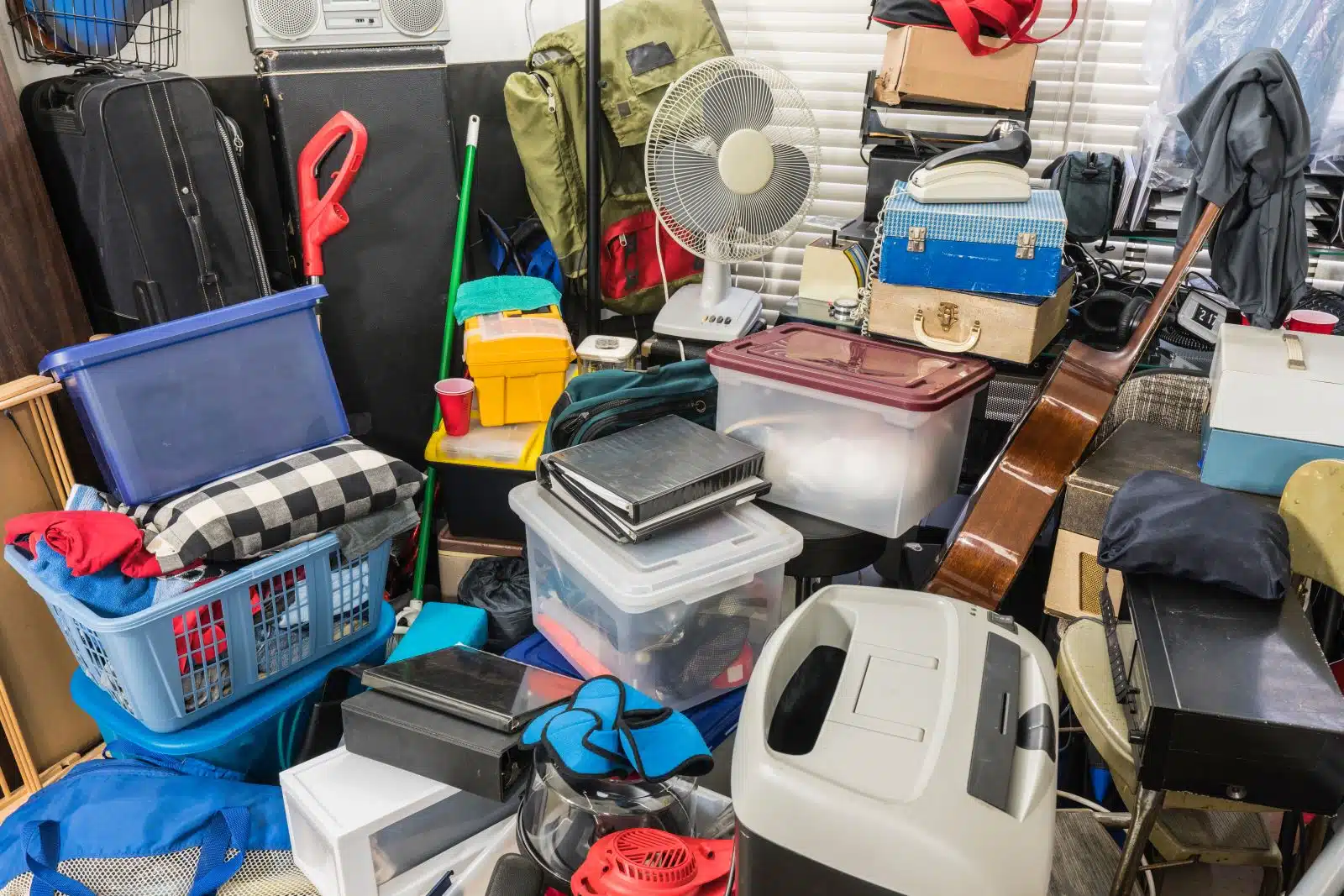Being poor is never a choice, and it should never be a mark of shame. It often reflects society, inequality, and financial hardships that are hard to overcome. Even after escaping poverty, many who grew up poor retain that mindset. It is challenging to shake the residual effects of feeling hunger and cold, People on a popular online community answered, “What are dead giveaways that someone grew up poor?”
The thread spurred memories of gratitude, resourcefulness, and nostalgia by some who shared their experiences. I recognized similar experiences tucked away in a memory bank from my upbringing.
1. Leftovers are Valuable

Food of any kind is often a luxury for those who are poor. People who go through difficult financial times will never let food or milk go to waste. Saving leftovers at home, or the rare event when the family goes out to eat is essential.
When invited to the homes of others, it is not unusual that they will bring home their remaining food. Even today, many people eat leftovers. They don’t understand others who throw out plates full of food in restaurants and at home. One said they always had peanut butter, jelly, and pasta available, just in case.
2. Parents Eat Last

Several told stories of how parents, and sometimes only Dad, would feed their kids first and wait for leftovers, if any. One said that his father was the sole parent raising four kids, and they ate only two meals daily, and Dad would eat what was left. Now they take Dad to dinner and bring groceries to show their gratitude. Some people said that they grew up eating fast, as their siblings were known to grab food off their plates.
3. Packing Food For A Road Trip

Several commented on only traveling a little except to visit nearby states. One person talked about always packing food and water when going on road trips with the family. They can justify rare vacations by avoiding stops for snacks or meals at restaurants or gas stations. It was fun to picnic outdoors.
4. Never Turn Down Free Food

One person said they would “never ever turn down free food.” That motto was shared by many who saw not taking advantage of free food, whether free samples at the grocery, a buffet, or a restaurant, as sinful. People talked about having “wish sandwiches” with condiments like ketchup, mustard, and mayonnaise between two pieces of bread, but without the meat. Others shared that they fry gristle fat from beef or bacon and cover it with ketchup as a favorite meal.
5. Non-Brands Vs. Popular Brands

Today, wearing non-brand clothing is easy to get and fills many frugal people’s closets, even if they are rich. A mix of comments varied from one actively shopping for non-brands in everything they bought to those who admired luxury brands. One person shared that she now shops for food brands when they are a bargain and will calculate the cost per ounce between the private label and branded foods.
Regarding clothes and young people, some will feel peer pressure about not wearing popular brands. One person pointed to her boyfriend, who grew up in the poor part of the South, and has the residual effects of being poor. He still wears a hoodie daily to cover up his non-brand shirts with holes and stains from years of use.
6. Saving Money Over Time

Saving money over time is often a sign that you grew up poor, even if it is disproportionate. For example, one told the online community that they would prefer spending two dollars less, even if it were going to that grocery store that was a 30-minute walk. As much as I value time, I can believe the justification if you want to pick up some exercise on the way to making a cheaper purchase.
7. Scoring Big With Collecting Cans

Being frugal is not always enough. One person told how he collected pop/soda cans from random places and pulled them out of the trash at a dime a can. His biggest score happened at a “rich dude’s garage after a party” when he cleared out the cans making over $600 that summer of 1984.
8. Not Taking Things For Granted

Some families had to decide between paying for food and electricity and making do with wearing heavy sweaters or coats to sleep. Even now, they will use low air conditioning even when it’s sweltering outdoors, use heat sparingly in the winter, and recommend their kids wear warm clothes in the home.
9. Buying An Expensive Calculator

For kids going to school, especially in middle or high school, there is virtually no way to get around the need for a scientific calculator for algebra, trigonometry, pre-calculus, and advanced college classes. One person recalled his father “losing his mind” over paying $15 for a Texas Instruments scientific calculator in 1989 for his freshman year in high school. She pridefully shared that the calculator carried her through and still works today.
The same one is now well over $100 when we needed to buy them for our kids, and we made a big deal over making sure they don’t drop them.
10. Being Ok With Inconveniences

Inconveniences like waiting for a bus in the rain, eating rice and bean days in a row, or sleeping wearing a coat, were shrugged off. One person shared that on their first plane trip, saying, I sat in the last row next to a fat person with little room, and I didn’t care because I am going somewhere.”
11. Treat Soap With Care

Many people had much to say about using the soap bar until it became thin and combined with a fresh one, “eeking out the last bit of value.” Those who are doing financially better admit, strike that, proud that they still do that practice today. Another person recalled that their family would not permit them to bring a soap bar to school for an art project.
12. Food Hoarding

Those who grew up poor point to the abundance of food that fills their pantry, refrigerators, and freezers to the gills as a measure of their prosperity. One said that when you have a full frig and pantry with various foods compared to a bare cupboard, “it’s like a savings account when you are used to money problems daily.”
My mom, a Holocaust survivor, was frugal to a fault but made sure we had what we needed, not just for the week, but it felt like for a nuclear war. Eating things well beyond sell-by dates was never out of the question, only that the food was edible.
13. Unwillingness To Throw Things Out

Many people, especially those with financial challenges, will hold on to every little thing to creatively reuse or repurpose it for other needs. They would take special care of expensive things to last as long as possible. They’d find other purposes, such as gift bags, empty Yogurt containers, washing out single-use plastic zip lock bags, used aluminum foil, from foam meat trays, and takeout containers “they’d use as if they were Tupperware. They will try improvising or repairing broken things like lamps that others may discard.
For many who were young, the hoarding of things was hard to let friends drop by the house and would step outside to meet them. They learned to be creative about their items, and as one put it, “Use it up, wear it out, make it do, or do without.”
14. Hating Gift-Giving Holidays

One person dreaded Christmas, which didn’t come from a disagreement with religion. Growing up in poverty, he said, “There was a residual discomfort around December that comes from being the kid at school who did not get ‘good presents.'”
It was not just Christmas that several shared that was awkward, but also birthdays, when young kids would receive birthday presents. Their parents would have to reciprocate by giving gifts to their friends they woefully couldn’t afford easily for their kids. To this date, many suggest they are nonchalant about birthdays.
15. Refusing Gifts

Some said they refused gifts altogether and would make people aware of their desires. One person said she feels uncomfortable when people do nice things for her and keeps a record of these “small personal debts,” intending to reciprocate the deeds.
16. Handling Money Is Challenging
Once they break out of poverty, people sometimes remain cautious of spending money after living on very tight budgets and growing up for fear of returning to that condition even when they are in better financial shape. However, this isn’t universal.
Some experience feast or famine, where they may have received a paycheck and sometimes have more money. One person admitted that she has no control over her spending and will buy material things she couldn’t have as a kid or splurge at a restaurant. As one person said, ” I can stretch a dollar a mile if I have to, but if I end up with $200 extra in my bank account after everything is taken out (for needs), it’s gone quickly for stupid things.”
17. Moving Places

One said that poor people are phenomenal at packing as they move locations often, whether someone got a job, couldn’t pay the rent, or hoped for better circumstances. It is common for your neighbors to help you get ready for the move rather than spend money to hire a relocation company. One teacher in a poor area shared that many students left with their families in the middle of the night.
18. Eating Famine Foods

The food we eat regularly is an indicator of one’s upbringing. Many referred to famine foods with some nostalgia as the food they still enjoy today. Besides P&J sandwiches, they recalled beans with rice or franks or threw franks into mac and cheese, carrots, ramen noodles, or knockoff bags of cereal as staples. Some preferred rice on its own or with flour tortillas. Potatoes were praised for versatility, with “dozens of ways to prepare them.” One recalled enjoying having sliced bread and butter for his birthday, which made him happy that day.
Those who grew up with grandparents who experienced the Great Depression recalled their grandfather finding and removing mold and continuing to eat his sandwich.
19. Delaying Dental Care

Going to the dentist was a luxury for many poor families. While friends from school may have gone for regular checkups or braces, many who were financially challenged were reluctant to get medical care and rarely went to the dentist. Even with health insurance, they found it challenging to make co-pay payments.
Getting braces was primarily out of the question and caused a lack of confidence for them at an early age. People dealt with teeth needing straightening in different ways, with one just giving a tooth-free smile while others, now in their forties, plan to straighten their teeth.
20. Rationing Chewing Gum or Milk

While dentists would probably encourage this in their practice, one person recalled a parent buying chewing gum and splitting it among their four kids so that each would get a quarter of a stick.
Milk is an essential ingredient, especially for growing kids, but it was also rationed. Parents would pour milk part way rather than a full glass to avoid wasting it. Some would use a milk jug and powdered milk, adding more water to last longer.
21. Rarely Going Restaurants

Going to restaurants was out of the question for most families, though visits to Mcdonald’s or other fast food places would sometimes be a monthly exception. However, when invited by their friends’ parents, most recall their parents reminding them about ground rules like ordering the cheapest item on the menu, getting appetizers or soup, taking home leftovers, drinking only water, and showing gratitude.
Growing up, many people only ate certain foods like shrimp or lobster once they dated others and were adults. Going to Olive Garden would be a notable luxury. Having Totino’s Party Pizza was a particular treat for several commenters.
22. Not Investing Money

People who grew up poor have difficulty making financial plans and investing their money. While there is never a guarantee to make money in the stock market, they fear losing money irrationally. According to some, they have severe mistrust and psychological obstacles toward financial markets that aren’t insured, like the banks covered by FDIC.
The poor are also less likely to apply for financial aid for college, like FAFSA, because it means giving their personal information to the federal government. Doing paperwork gives people anxiety, especially if they are poor.
19 Things What Generation X and Boomers Cherish Most of the Iconic 1980s
Image Credit: Deposit Photos
Being nostalgic for when you came of age holds precious memories for people of those generations, Generation X and Baby Boomers, who miss those fun-packed experiences today. However, they have significant interest for those who came later and provide insight into what life was like in the 1980s. Looking back on the iconic trends of that era, perhaps with rose-colored glasses, people shared what they missed most of the 80s on an online forum. Walk through memory lane with us.
10 Things Everyone Should Have In Their House
Image Credit: Shutterstock
Creating a safe and functional living space is a top priority for homeowners. Whether you’re a seasoned homeowner or starting, certain essential items should be present in every house. These items contribute to the overall safety and well-being of the residents and enhance convenience and preparedness for unforeseen circumstances. From safety equipment to practical tools, incorporating these essentials into your home ensures a comfortable and secure environment for you and your loved ones.
10 Things You Should Buy That Will Increase Your Quality of Life
Image Credit: Shutterstock
We all strive for a better quality of life, where everyday experiences are enriched, and our overall well-being is elevated. Luckily, there are a variety of items available that can help us achieve just that. Making thoughtful purchases can enhance our daily routines, improve comfort, and boost our satisfaction.
18 Everyday Things From the 90s That Are Now Luxuries
Image Credit: Deposit Photos
Had we only known that everyday things we were accustomed to daily might disappear or become a luxury, would we appreciate them that much more? With the advent of technology, we carry computers in our pockets, access a lifetime of entertainment, music. sports, and video games, and shop without leaving our couch while communicating with friends and family anywhere in the world.
These astronomical advances are a giant leap from before the Internet, but many things that were part of everyday life are now considered a luxury. On an online forum, people shared what they miss most today that was typical in the 1990s.
10 Outdated Things Boomers Always Keep in Their House and Use
Image Credit: Shutterstock
As time passes and technology advances, certain generations hold on to the familiar relics of the past. One such generation is the Baby Boomers, who often have a penchant for keeping and using outdated items in their homes. From landline phones to fax machines, vinyl records to VHS tapes, Boomers embrace these relics as a reminder of simpler times and a nod to their personal preferences.
Source: Reddit
Hi There!
With a passion for investing and personal finance, I began The Cents of Money to help and teach others. My experience as an equity analyst, professor, and mom provide me with unique insights about money and wealth creation and a desire to share with you.







